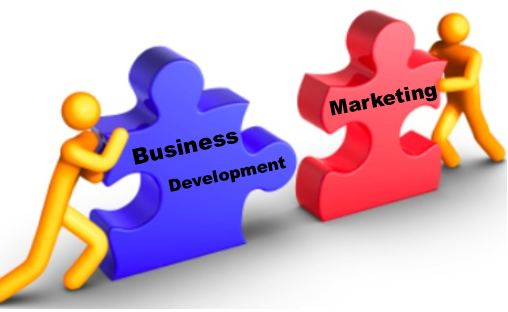Overview of Anglia Ruskin University BA (Hons) in Marketing
The BA (Hons) Marketing In Kuwait aims to provide students with a coherent and strong foundation in marketing in order for students to choose a marketing job of their choice after graduation. Student’s interest in Business Marketing Degree Programs is nurtured and they are provided knowledge on key marketing theories and concepts whilst also equipping them with the skills and abilities to work in an international business environment.
As a marketing career demands constant development of knowledge, skills and attitudes, the programme develops transferable skills necessary for student’s personal development as life-long independent learners.
Term Wise Modules
Term 1 Modules
Economics for Business and Management
This module is an introductory economics course designed for students with either no background in economics or those with A-level/Higher/High School diploma in economics. It provides an introduction to the fundamentals of economics and focuses on applying key insights to business and management applications. Due to the nature of modern economics the approach of the module is necessarily analytical, but the analysis is non-technical and relies on verbal reasoning and graphical methods, wherever possible real world examples will be used to illustrate economic principles.
The first part of this module focuses on microeconomics – the decisions and behavior of individuals and firms, and of government with a single industry. The second part of the module focuses on macroeconomics – the economy at aggregated national and international levels – and its impacts on business behavior.


Introduction to Accounting and Finance
This module aims to give the student a sound grasp of the basics of financial reporting (context, purpose, regulatory framework). It introduces the principle concepts of financial accounting. The preparation of principal financial statement will also be explored. This module is also designed to introduce students to key management accounting skills necessary to support decision making. It will emphasise the acquisition and application of skills and knowledge necessary to inform managers responsible for planning, decision making and control and will provide the underpinning skills and knowledge required for more advanced study.
The key issues addressed will be the fundamentals of cost data collection, analysis and allocation of costs, costing of products and services using absorption and marginal costing techniques, short term decision making – cost volume profit analysis, budgeting and budgetary control.
Term 2 Modules
Academic Skills
This module aims to equip the student to function effectively as an independent self-learner within the higher education learning environment, with specific reference to the area of business management. Students will be introduced to the learning context and the responsibilities of the individual learner within higher education. They will be encouraged to develop both practical skills and academic skills central to undergraduate business degree programmes.
These will include: time management; reading and note taking, critical analysis, critical writing, essay writing, reporting writing, preparing for exams, referencing, the use of information technology and associated software packages, presentation skills, problem solving, both individually and in teams. In addition, the students will be introduced to personal reflection and increasing their effectiveness as independent self learners.


Marketing Essentials
It is important that students in the First Year to gain knowledge of the integrated nature of business, and of how the various parts fit together to build a sound business knowledge, before they specialise in Year Two. Students should understand that Marketing is a key functional area of business and management which, together with Human Resource Management, Accounting and Finance, and other activities involving resource allocation, can determine the success or failure of an organisation.
This core module seeks to build a platform of Marketing knowledge and skills to give students a firm base for moving forward into more specialised areas in year 2 of their programmes. The emphasis will be examining the role that marketing management can play in implementing and controlling the marketing mix processes.
Analysis of Business
The module begins by reviewing various techniques for collecting and presenting data. Some important measures and techniques for making sense of raw data are then introduced which are widely used by businesses when analysing both their internal and external environments. This module builds on the introduction to spreadsheet packages previously encountered within the core Learning and Skills Development in Business module or its equivalent. Students will be helped to develop further their hands on skills in using such packages in computer workshops. Careful attention will also be paid throughout the module to the interpretation and application of the various quantitative methods and techniques to the solution of real-world business problems.
One of the main focuses for the design of this module has been the further development of relevant employability and professional skills. Such skills are implicit in the learning outcome.

Introduction to People, Organisation & Management
This module is designed to introduce to students principles and theories of management and organisational behaviour. Students will review the main approaches to organisation, structure and management influencing the behaviour of individuals at work.
The nature of organisations: This part of the module focuses on the impact of structures, culture and patterns of management on the behaviours of people. Students will review the classical, human relations, systemic and contingent approaches to management and work design, from Scientific Management to Postmodernism. Organisation structure and architecture will also be examined as these are designed to provide systems and control to direct behaviour and improve performance. The development and impact of organisational culture will also be discussed

Term 3 Modules
International Business
The module introduces students to the important area of international business. It begins by identifying some important patterns and trends in international business activity. The factors influencing the firms decision as to the degree of internationalisation and the methods adopted are considered, as is the theoretical and institutional framework within which international business must operate.
External challenges to the international firm are examined, such as those in the economic, political, cultural, ethical and legal fields. Possible internal responses to these challenges are evaluated, including strategic, human resource, marketing, accounting and logistical responses. The importance of a multidisciplinary perspective for purposes of analysis will be emphasised throughout, as will the use of up-to-date case study and applied materials.


Consumer Behaviour
The aim of this module is to help students understand consumer behaviour in business-to-consumer (B2C) markets. The behaviour of consumers and the psychological and environmental influences will be explored with an emphasis on a behavioural sciences perspective. Areas to be examined include; attention, perception, memory, learning, attitude, motivation, socio-cultural influences, lifestyle perspectives and the consumer decision making process.
The role of marketing will be constantly discussed illustrating how an understanding of consumers plays an important role in effective consumer marketing. Many theoretical perspectives will be discussed and applied to practical examples demonstrating how theory and practice come together in a market environment. New perspectives in the study of consumer behaviour such as neuromarketing will be explored.
Enterprise and Entrepreneurial Management
The module will introduce and develop the skills and knowledge surrounding entrepreneurship and business start up. A systematic exploration of the current academic literature and its application to practical enterprise and entrepreneurial management within a real business planning context will be undertaken. The core to this module will involve developing an understanding of the key stages associated with a business start up.
In addition, the module will explore the practical skills required to establish an entrepreneurial venture and the processes associated with: the management of the elements connected with business planning; for example, creativity, management and leadership, building key business relationships, financial planning, sustainability and understanding the importance of setting and achieving realistic goals.

Term 4 Modules
Systems and Operations Management
The module will give students the opportunity to understand the strategic role of systems and operations management in businesses. There will be an exploration of how systems and operations are key enablers for improving customer experiences and for managing processes. The module will focus on how systems are essential for value chain and supply chain management. The operations process and information systems perspective of the input-process-output model will be applied.
Using these theories and models, students will be able to critique organisations and develop proposals to improve systems and operations within an organisation. The ability to analyse current situation is a key analytical skill for developing students ability to solve problems. Students will develop knowledge of information systems infrastructures and how to apply these ideas to an organisation.


Marketing Communications
This module is designed to give students an overall understanding of marketing communications and the part that it plays in marketing and in business success. The tools and techniques used in marketing communications are identified and analysed. The module explores the role of the internet and e-commerce in developing marketing strategies to complement and strengthen those found in traditional marketing approaches and techniques.
The module explores Internet Marketing and Ecommerce, Advertising, Sales Promotions, Public Relations, Publicity, Personal Selling, Sponsorship, Packaging, Direct Response, Merchandising and Exhibitions. How and why each method is used and the advantages and disadvantages of each is identified, illustrating how the methods interact with the other elements of the marketing mix.
Business to Business Marketing
This module is designed to give students an insight into the specific issues involved in strategic business-to-business (B2B) marketing. More businesses sell to other businesses than sell to consumers, and many students are likely to follow marketing careers in business-to-business marketing rather than in consumer marketing organisations. This module will also compliment any studies into small business issues.
Particular emphasis will be given in the lecture programme to the national and international background to B2B marketing, the products and services offered and the organisational decision-making and buying process making comparison to business to consumer (B2C) marketing throughout. The lecture programme builds a theoretical framework step-by-step, so that the students can approach any organisational case, and produce an appropriate marketing and sales strategy.


Business Research Methods
The module will introduce students to business and organisational research methods. The module will cover a range of qualitative and quantitative research methods. The module provides a guide to understanding the tacit and explicit processes whereby students are socialised into the field of business and management research. It is a practical module informed by theory and real-life examples, which helps students explore the philosophical debates and underlying business and management research and considers how they relate to our understanding of knowledge and business practice. The module also adopts a more specific focus on the key research skills that are involved in primary, secondary, and mixed methods business and management research. Students will be introduced to the importance of research to the business world, they will learn how to review academic literature, how to construct research questions and objectives, how to construct a research design.
Term 5 Modules
International Marketing
This module is designed to provide students with an understanding of marketing from an international perspective. The increased access to new markets across the world means that both opportunities and threats face marketers in the global context. Overcoming cultural issues remains a key challenge, along with the ability to communicate effectively to perhaps a very different target audience. Although the module examines a range of case examples and international markets, special attention is given to the Chinese market.


Marketing Consultancy
This module will give students the opportunity to undertake an in-depth marketing project for a client organisation or to undertake a case study consultancy project. Students will work in groups and be given a live project for which they will be expected to work towards a solution to a need that the client and students will have identified
Strategic Management Analysis
As with the best business schools, this module is designed to provide students with a holistic view of organisations strategic position and thus, the ability to appreciate the importance of strategic decisions at all levels of the business organisation. Its primary aim is to provide a vehicle for considering issues which cut across the functional boundaries of business organisations and which require multi-disciplinary skills in the solution.The module is concerned with the strategic analysis of organisations with regard to their competitive positioning, their strategy with their environment and their management style and culture. This analysis will form the platform for reviewing strategic options in response to the competitive environment and for considering aspects involved in implementing such strategic options.

Term 6 Modules
Sustainable Management Futures
This core module is a capstone module that takes a futures perspective on management, organisations and the changing nature of business and enterprise models. It is both a forward-looking and integrative module that aims to bring together our students understanding of the evolving context of sustainable management.The module takes a dimensions-based view of the notion of sustainable management futures by introducing the people, planet and profit lenses for understanding sustainable management. It aims to introduce students to the idea and value of developing a futures mindset from a number of perspectives, including ethical and entrepreneurial; tolerant and innovative; and responsible and responsive.


Organisational Change Management
A degree in marketing covers all aspects of an organisation, from the way in which all departments contribute to achieving business goals, how business challenges are overcome, to aspects such as the way in which changes within the organisation affects employees in an organisation. Students will gain an understanding about how an organisation will try to achieve a high level of employee engagement by re-shaping their attitudes, and behaviour in conjunction with the changes taking place within the organisation.
Retail Marketing
This module applies core marketing principles in a retail context and develops specialist knowledge of the retail industry from a marketing perspective. There are clear links to other business curriculum areas: marketing management, consumer behaviour, human resources, operations management and economics. Retailers are never far from the news and their marketing activities are equally visible to students of retail marketing and to consumers. This makes for an exciting and rewarding area of study as the module examines the fast moving nature of the retail environment and the difficult task retail marketers face in connecting with consumers in a competitive marketplace.


Undergraduate Major Project
The Major Project module allows students to engage in a substantial piece of individual research and/ or product development work on a selected topic within the broad business and management field, as appropriate to their interests and background. It is the culmination of this fast track degree programme. The project’s topic will be assessed for suitability to ensure sufficient academic challenge and satisfactory supervision by an academic member of staff. The chosen topic will require the student to identify/formulate problems and issues, conduct literature reviews, evaluate information, investigate and adopt suitable development methodologies, determine solutions, develop hardware, software and/or media artefacts as appropriate, process data, critically appraise and present their finding using a variety of media. One of the main focuses for the design of this module has been the further development of relevant employability and professional skills
Projects you will be part of

Strategic Management Analysis

International Marketing

Marketing Consultancy

Sustainable Management Futures

Organisational Change Management

Undergraduate Major Project
Course Leader

Gayan Jayasinghe
The head of the academic panel at LSM, Gayan Jayasinghe, has over a decade of experience working in the education industry, holds two MBA qualifications from Worchester University and Anglia Ruskin University respectively and is a Fellow of Higher Education Academy, UK. He also holds a Postgraduate Certificate in Learning and Teaching and has educated more than 2000 students in his career as an educator.
